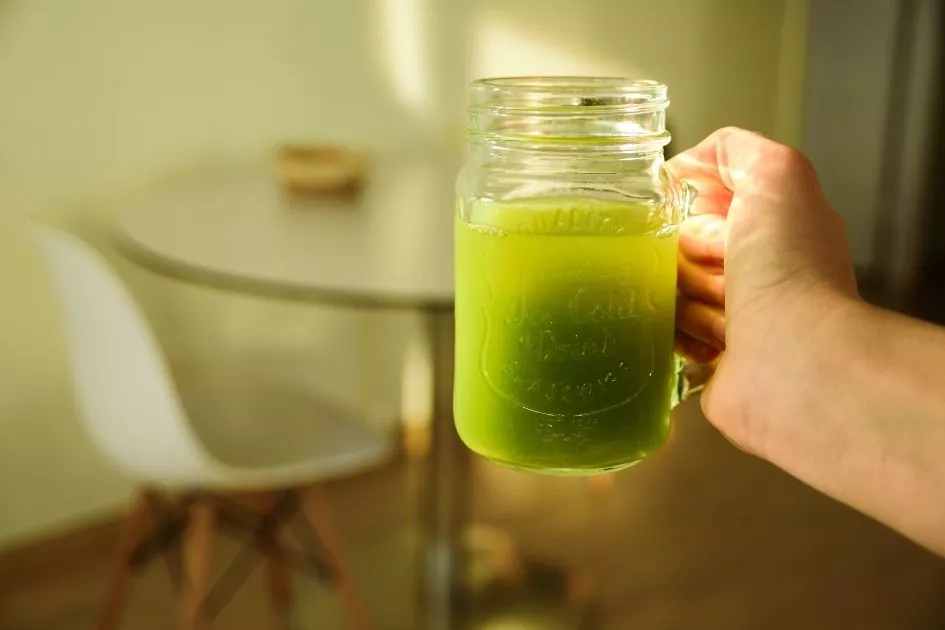Anthony William has brought a lot of attention in his book entitled "Medical Medium Celery Juice". Celery juice, he says, is unique in its health benefits, examples of which include: aiding weight loss, improved digestion, and energy, restored nervous system function, detoxification, and the ability to combat or remedy pathogens and mental health problems. These all sound very bright, but are they true?
Brief about Celery Juice
You could get the benefits of celery juice by squeezing a bunch of celery every day. You would prefer to drink this every morning on an empty stomach, and then you wait 15 minutes until you eat. If you do this, you can tackle all kinds of ailments with it; this applies to several fronts: mental, physical, spiritual, or emotional. Celery juice is alkalizing, enzyme-rich, electrolyte strengthening, liver repairing, blood sugar balance, antiseptic and more. So you cannot really get these benefits on food through the juice. According to William, this has to do with undiscovered sodium cluster salts in the juice. These have an excellent effect on removing toxins, dead pathogens such as viruses and bacteria, and pathogenic neurotoxins and waste from the body.
Proof vs. Hype
There are many arguments against the so-called unique, undiscovered cluster of salt in celery juice. There is no evidence of this. However, the lack of evidence does not mean that celery juice is not consumed on an empty stomach every day. When something - however marginal - seems to work for someone when nothing else has done it, it isn't easy to convince them otherwise. However, it is essential to consider why something could help and the long-term consequences, whether good or bad, especially if there is no proven science behind it. Now we are talking about vegetable juice, which is not harmful (provided that is not the only thing you live on).
Here are the facts
The main reason people feel better by consuming celery juice has to do with giving yourself something nourishing. And in addition, you may be leaving something less nutritious (chocolate sprinkles sandwich). Celery juice is naturally rich in nutrients that make your body happy. All vegetables contain legitimate health benefits, and celery is no different. Both the juice and the whole celery are good for you. This is because they contain vitamins, minerals, and antioxidants such as vitamins A and C, folic acid and beta-carotene, potassium, sodium, and magnesium. And science also shows that celery contains natural bioactive phytochemicals that have potential health benefits. The most notable are: apigenin and luteolin, both of which have anti-inflammatory and anti-cancer properties. While no research has been done on celery juice itself (most of it has been done with whole celery, celery seed, celery leaves, or celery extract), celery also acts as a natural diuretic. Which means it helps to reduce water retention (and possibly bloating).
Both juicers and blenders are the options to make a beverage from celery. That said, celery juicers would be the right choice since they perform much better juicing until the celery pulp gets very dry and extracts nutrients to the maximum possible extent.
But not a miracle
There is no panacea for any disease, and celery juice is no exception to this rule. And besides that, celery is no higher in bioactive compounds than other vegetables, so combining even more vegetables in the juice can yield even more benefits. Celery is alkaline to the body (and thus anti-inflammatory), but all vegetables and even citrus fruits have this property. So celery doesn't seem to be particularly special.
Unintended Consequences
While celery juice isn't necessarily a panacea, many experts say drinking it regularly is likely safe and healthy for most people. Other experts do state that it is advisable not to do this too strictly. As the famous adage goes, "Enough is as good as a feast." This is because we don't know much about celery juice, especially since it contains highly concentrated levels of certain compounds. For example, it is known that you do not want to consume too much of certain herbs.
Steven Gundry (author of The Longevity Paradox: How To Die Young at a Ripe Old Age) is even more careful about celery juice. His reasons for this are the compounds found in celery (called psoralen); a high concentration of these may make you more sensitive to sunlight and negatively affect your thyroid gland.
However, some of the potential dangers of celery juice are not due to the celery juice itself but more because a particular food item becomes sensational in the media. This quick-fix mindset also goes against what we know to be true: no food on its own will cure you. And suggesting that celery juice has this power is not without consequences. People believe they can drink celery juice while still eating all other unhealthy foods.
Conclusion
As you probably guessed, there isn't enough research to confirm that celery juice is the panacea believed to be. And while celery has legitimate nutritional benefits, many other vegetables do too, often in greater amounts - after all, celery is 95% water. At this point, most experts seem to think that adding extra veggies to your juices is better than the hyper fixation on celery juice.

